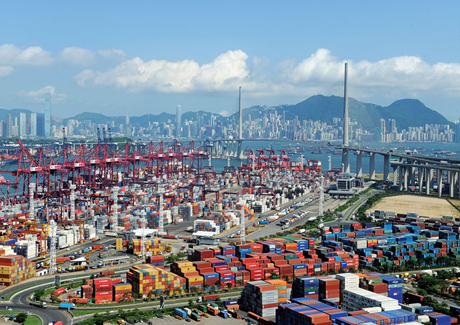The government recently gave the go-ahead to establish an economic zone for agro-processing industries at Alaolpur union of Gosairhat upazila in Shariatpur, some 55 kilometres south of Dhaka, capital of Bangladesh.
On October 26, the Prime Minister’s Office declared 686 acres of land in the Charjalalpur area of Alaolpur as an economic zone in accordance with the Bangladesh Economic Zones Act, 2010.
Google News LinkFor all latest news, follow The Daily Star’s Google News channel.
However, it remains undecided whether land development works will be carried out by the Bangladesh Economic Zones Authority (Beza) or the investors themselves, according to officials of the state agency.
Beza Executive Chairman Shaikh Yusuf Harun said their governing body headed by Prime Minister Sheikh Hasina has granted approval for 97 economic zones till date.
Of these economic zones, 68 are government initiatives while the rest are private.
Harun also informed that the Shariatpur economic zone will be built on state-owned fallow land, known as Khas land in Bangladesh, on the bank of Meghna river.
He said Beza has been establishing economic zones in areas with potential for industrial growth, including backwater regions, with the aim of encouraging economic development, industrialisation, employment, export growth and diversification.
The Shariatpur district administration had first proposed an economic zone in the char area of Gosairhat in 2016 but the plan was stalled for several years due to various complications.
In the last three-and-a-half years, local and foreign investments proposals amounting to $24 billion were promised for six of the state-run economic zones. However, the actual investment stands at just $1.6 billion, according to Beza.
Of the realised investment, $80 million came from foreign investors, which is again much lower than the inflows initially pledged.
Of the private economic zones, 12 received good responses from investors, drawing investment proposals of more than $4.5 billion from local and foreign entrepreneurs in the past seven years.
At least 80 percent of the sum has already been invested in the private zones, set up as part of the government’s initiative to establish 100 economic zones across the country as it looks to accelerate industrialisation, create jobs and cut poverty.
However, developers of a number of private economic zones are finding it hard to implement plans for a lack of gas connections.
They apprehend that entrepreneurs aiming to invest in setting up factories inside the zones would incur losses if they cannot start operations as soon as possible.




